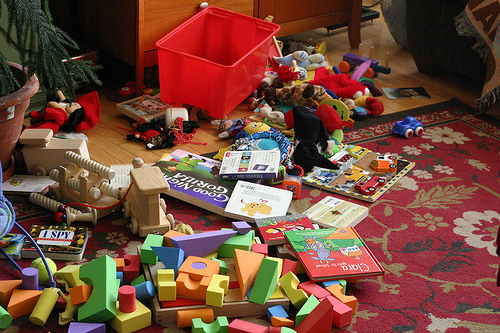 Question:
Question:
Why has Islam prohibited music, and what is the philosophy in prohibiting it?
Answer:
Music has become so common that most people are not ready to think about music in its proper perspective (about the bad evil effect of the music) and follow ferociously this wrong way of thinking according to which whatever is in common practice is seen to be without blemish.
They are not ready to study the evil and pernicious effects of music. To the extent that the people who are realistic are not content to this condition also, and in spite of those things being common they always endeavor to understand the reality and are engaged in research.
Music from many viewpoints is worth investigation.
(1) It causes harm to the physics of human body and leaves a bad effect on the nervous system. Keeping these factors in mind a Professor of Columbia University, Dr. Wolf Adler says:
‘The best and most fascinating tunes of music leaves the worst kind of effects on the nervous system of humans and especially when the climate is hot; then the unpleasant effects are too much.’
The famous French expert Dr. Lycus Carl says:
“It is possible that the fulfillment of beastly lust might be having some importance, but there is nothing unfair than this that the life passes in fun.
The general deficiency of intelligence and understanding is the effect of alcohol and in the end it is the result of indiscipline in the habit. There is no doubt in it that films, radio, television are partner to the worrisome moment.
Generally music should be counted as something which has narcotic effect (which causes benumbing of sense), because, it’s benumbing cannot be denied by any means. There are many types of benumbing and a person can numb his nerves in different ways.
Sometimes numbness comes by food. For example alcoholic drinks create great numbness in the nerves and render ineffective the power of thinking and senses. Sometimes something is inhaled through the nose that creates numbness; for example heroine, which is absorbed in the body through the nostrils, which for a certain period of time makes one intoxicated and many such patients who require anesthesia by such matter, is injected into their veins.
Sometimes this numbness comes through the ears by listening to music and concert. This effect sometimes is so strong that it takes out the person out of reality like a dazed one. And his attention is withdrawn from everything.
Keeping this point in mind, you will agree that music is nothing but numbness and it is the bearer of all or most of the vices and damages of intoxication.
Mainly people get so much pleasure and entertainment from music because of this numbing effect. Sometimes this effect is so powerful that, a person loses his senses and brain to the extent that he starts behaving in a strange manner.
For example when the benumbing effect of music becomes severe a person’s power of making right decisions is curtailed. Then he cannot perceive correctly between good and bad, right and wrong, because most of the time he is under the effect of music and his mind, thoughts and strength of his senses, manners becomes prisoner of intoxication of the fierce tunes of the music. Hence he commits such uncultured actions, that in normal conditions doing such things he will think that it is against his status and contrary to human behavior.
We think that, this part of our conversations is not in need of any example or model, because every sensible person knows that, in those dinner parties where stranger males engaged in dances with unrelated stranger females, always they are consistent with loud keynotes of music, and the vibration of tunes of music puts curtain on the mind and understanding of the people in such a way that, for them doing every despicable act and all such acts which are below the dignity of humans, to perform them becomes so easy and simple for them.
What greater intoxication can be there other than this when the voice of music affects the mind of a person, a kind of indolence takes over his nerves? And that foolish person cannot think of anything from human imagination, except sex.
On his intelligence and on his power of comprehension a curtain is drawn in such a way that he forgets the sacred concepts of life like mercy, benevolence, kindness, chastity, modesty, trust, integrity, equality, brotherhood, greatness, eminence and magnificence, making efforts and hard work to fight for the attainment of the purpose and to be steadfast.
There is no second opinion that, right from day one, alcohol and music had been the greatest factors of encouraging sexual promiscuity for the lustful males and females and they on special occasions for intoxicating their nerves take help of these (i.e. alcohol and music).
It is correct that Islam never restrains man from his natural pleasures, but it prohibits those temporary and artificial entertainment created by intoxicating the nerves and arousing lustful desires and it takes away man from his natural condition.
Ethical limits of music
Is there any doubt that among the factors of moral deterioration are these writings and the heart-rending tunes of music do not spread its wings for propagating of arguments contrary to chastity?
Does not the fascinating voice of women and girls along with musical tunes arouse lust; create fervor for lovemaking in the youths? And the heart, which is packed with lustful songs and amorous writings, does it have any for remembrance of Allah? Does that heart, which is drowned in the whirlpool of loving voices and vibrations of music, can think regarding the needy and the poor?
As a principle it should be seen that what are the ingredients and occasions of musical parties. And what are the demands of and different kinds of stimulations? In those gay dance and music parties is there anything else except sexual promiscuity, wine and tasty foods? And the thing, which causes these evil consequences, can be allowed by a heavenly law?
The conclusion is that musical tunes have pernicious effects with regard to numbing of the nerves. And from the ethical point of view also it arouses lustful desires in the human beings.
By way of protecting health also it is proved that, in our time, there are different factors and causes of increase in the number of unexpected and sudden deaths, one of which is the craze of music, because music creates excitement and excitement damages the balance of nervous system.
People who are day and night bombarded by songs and music are prone to heart failure and brain hemorrhage.
However much is not necessary to show that nerves very soon become unserviceable because of continuous excitement.
This was one side of the harms of music.
Philosophy of Islamic Laws:Ayatullah Naser Makarem Shirazi, Ayatullah Jafar Subhani








